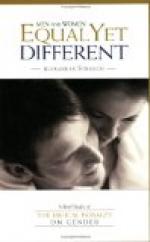Her constitution having been broken down by her incessant toils, a voyage to America was recommended in order to recuperate it. On the voyage thither, when between the Isle of France and St. Helena, she died, and was buried on the latter island.
We have selected these two gifted Christian women as representative missionary women, who, though brilliant examples, did not excel many others in the host of devoted women who have gone out from Great Britain and America into the dark places of the earth, on the same godlike errand.
We have already mentioned the honored names of several philanthropic ladies, whose works praise them throughout Europe and America. The list might be extended indefinitely, but we have space for but a few.
THE MISSES CHANDLER.
The National Hospital erected for the Paralyzed and Epileptic (England) owes its origin to the humane efforts of two sisters, Joanna and Louisa Chandler. These ladies, finding that among all the charitable institutions existing in London there was not one into which a poor paralyzed man would be admitted, conceived the idea of establishing a hospital for that particular class of sufferers. Though only in moderate circumstances, they devoted two hundred pounds of their own means to the object. For five years, they received no assistance; but their continued appeals at length attracted public attention. Various philanthropic gentlemen and ladies became interested in the enterprise. The necessary funds were collected mainly by the exertions of Miss J. Chandler and the ladies who had associated themselves with her, and the hospital became an accomplished fact.
The same persevering energy, directed by sound judgment and practical business talent, was conspicuously displayed by Miss Adaline Cooper, in her efforts for the improvement of the condition and morals of the costermongers of Tothill Fields, Westminster. Among the degraded, they as a class were regarded as the most degraded. But, strong in her faith in the power of kindness, she went in among them, and commenced day and night schools, a Sunday-school, a mothers’ meeting, and a temperance society. Through these appliances she influenced the women and children, but the men stood aloof. The more desperate even threatened to drive her and her assistants away; but she was not to be intimidated. She erected a handsome building for a Costermongers’ Club; and constructed a dwelling-house large enough to accommodate fifty or sixty families. The entire expenditure for these purposes amounted to nearly nine thousand pounds.
Soon after the Club was formed, a large number of the members, perceiving the benefit of abstinence, signed the pledge. She formed a Bible-class for their improvement, and established a penny-bank for the Band of Hope.
In reward of her labors, she had the satisfaction of seeing a marked reformation in both their morals and circumstances. Very many of these poor people, the very name of whose calling had been a synonym for dishonesty and kindred vices, became sober, industrious, and honest men and women.




